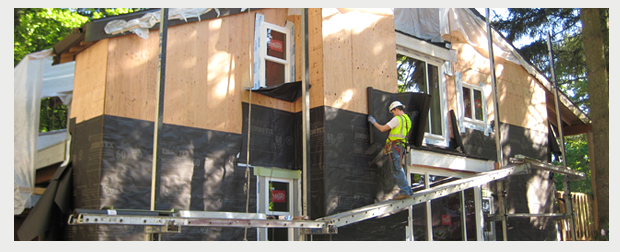Managing Construction Delays and Budget Overruns in Seattle Projects
Construction projects in Seattle, like in any major city, come with their own set of challenges. From unpredictable weather to complex permitting processes, managing construction delays and budget overruns can be particularly daunting. However, with careful planning and effective management strategies, you can mitigate these issues and keep your project on track. Here’s a comprehensive guide to handling construction delays and budget overruns in Seattle’s dynamic environment.
Understanding Common Causes of Delays and Overruns
Before diving into solutions, it’s important to recognize the typical causes of delays and budget overruns:
Weather Conditions: Seattle’s weather can be unpredictable, with frequent rain and occasional snow impacting construction schedules.
Permit Delays: The permitting process in Seattle can be lengthy and complicated, causing delays if not managed efficiently.
Unforeseen Site Conditions: Unexpected issues such as soil contamination or hidden structural problems can lead to delays and increased costs.
Supply Chain Issues: Delays in the delivery of materials or equipment can halt progress and affect the budget.
Labor Shortages: Finding skilled labor can be challenging, leading to project delays and increased costs.
Strategies for Managing Delays
Thorough Planning and Scheduling:
Develop a Detailed Project Schedule: Create a comprehensive project timeline with built-in buffer periods for potential delays.
Utilize Project Management Software: Tools like Procore or Buildertrend can help track progress, manage schedules, and communicate effectively.
Regular Communication and Updates:
Hold Regular Meetings: Weekly or bi-weekly meetings with your team, subcontractors, and stakeholders can help identify and address potential issues early. Keep Transparent Records: Document all changes, delays, and communications to provide clarity and accountability.
Implement Weather Contingencies:
Schedule Weather-Dependent Work Wisely: Plan critical outdoor work during the drier months and have contingency plans for inclement weather. Prepare for Wet Conditions: Invest in weather-resistant materials and equipment to minimize weather-related disruptions.
Efficient Permit Management:
Understand Local Regulations: Familiarize yourself with Seattle’s building codes and permit requirements to avoid delays.
Work with Experienced Professionals: Hire experts who are well-versed in navigating the Seattle permitting process.
Contingency Planning:
Identify Potential Risks: Conduct risk assessments to identify and plan for potential issues that could cause delays.
Develop Contingency Plans: Have strategies in place to address common risks and minimize their impact on the project timeline. Strategies for Controlling Budget Overruns
Detailed Budget Planning:
Create a Comprehensive Budget: Include all potential costs, including labor, materials, permits, and contingencies.
Regularly Review and Update the Budget: Track expenses against the budget and adjust as needed to avoid overspending.
Effective Procurement Management:
Source Materials Early: Order materials well in advance to avoid price increases and delays.
Negotiate with Suppliers: Build strong relationships with suppliers to secure better prices and reliable delivery.
Monitor Project Costs:
Use Cost Tracking Tools: Implement software to track expenses and compare them against the budget in real time.
Analyze Cost Variances: Regularly review cost variances to identify and address any budget discrepancies.
Control Scope Changes:
Manage Change Orders: Handle change orders carefully and ensure they are documented and approved before implementation.
Communicate Changes Clearly: Keep all stakeholders informed about scope changes and their impact on the budget.
Improve Efficiency:
Optimize Resource Allocation: Ensure that labor and materials are used efficiently to avoid unnecessary costs.
Streamline Processes: Implement best practices and efficient workflows to reduce waste and increase productivity.
Managing construction delays and budget overruns in Seattle requires a proactive approach, effective planning, and ongoing communication. By understanding common causes of delays and budget issues, implementing robust management strategies, and staying adaptable, you can navigate these challenges successfully. Whether you’re managing a residential renovation or a large commercial project, these strategies will help you keep your project on track and within budget.


